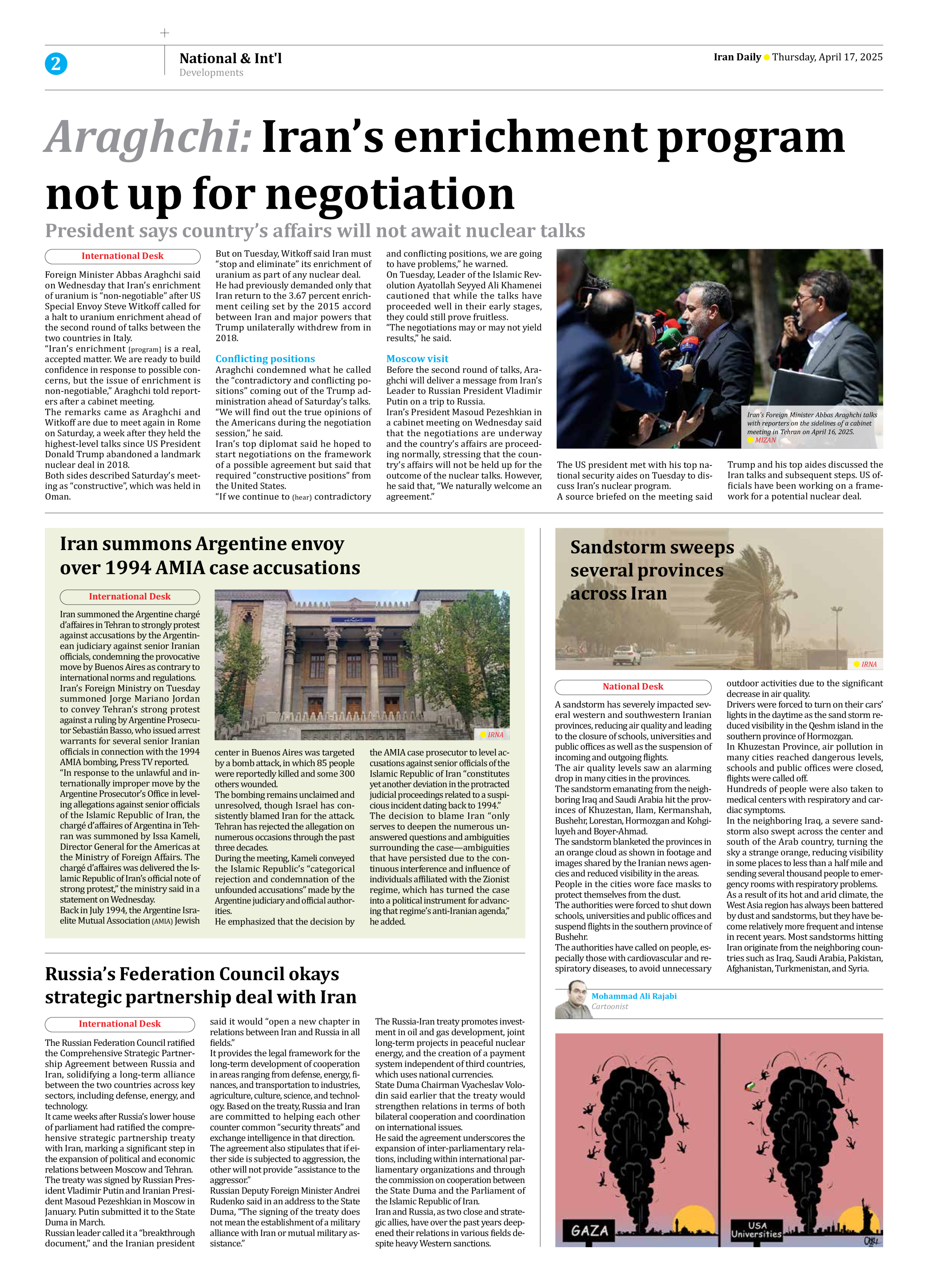
Iran summons Argentine envoy over 1994 AMIA case accusations
Iran summoned the Argentine chargé d’affaires in Tehran to strongly protest against accusations by the Argentinean judiciary against senior Iranian officials, condemning the provocative move by Buenos Aires as contrary to international norms and regulations.
Iran’s Foreign Ministry on Tuesday summoned Jorge Mariano Jordan to convey Tehran’s strong protest against a ruling by Argentine Prosecutor Sebastián Basso, who issued arrest warrants for several senior Iranian officials in connection with the 1994 AMIA bombing, Press TV reported.
“In response to the unlawful and internationally improper move by the Argentine Prosecutor’s Office in leveling allegations against senior officials of the Islamic Republic of Iran, the chargé d’affaires of Argentina in Tehran was summoned by Issa Kameli, Director General for the Americas at the Ministry of Foreign Affairs. The chargé d’affaires was delivered the Islamic Republic of Iran’s official note of strong protest,” the ministry said in a statement on Wednesday.
Back in July 1994, the Argentine Israelite Mutual Association (AMIA) Jewish center in Buenos Aires was targeted by a bomb attack, in which 85 people were reportedly killed and some 300 others wounded.
The bombing remains unclaimed and unresolved, though Israel has consistently blamed Iran for the attack. Tehran has rejected the allegation on numerous occasions through the past three decades.
During the meeting, Kameli conveyed the Islamic Republic’s “categorical rejection and condemnation of the unfounded accusations” made by the Argentine judiciary and official authorities.
He emphasized that the decision by the AMIA case prosecutor to level accusations against senior officials of the Islamic Republic of Iran “constitutes yet another deviation in the protracted judicial proceedings related to a suspicious incident dating back to 1994.”
The decision to blame Iran “only serves to deepen the numerous unanswered questions and ambiguities surrounding the case—ambiguities that have persisted due to the continuous interference and influence of individuals affiliated with the Zionist regime, which has turned the case into a political instrument for advancing that regime’s anti-Iranian agenda,” he added.







